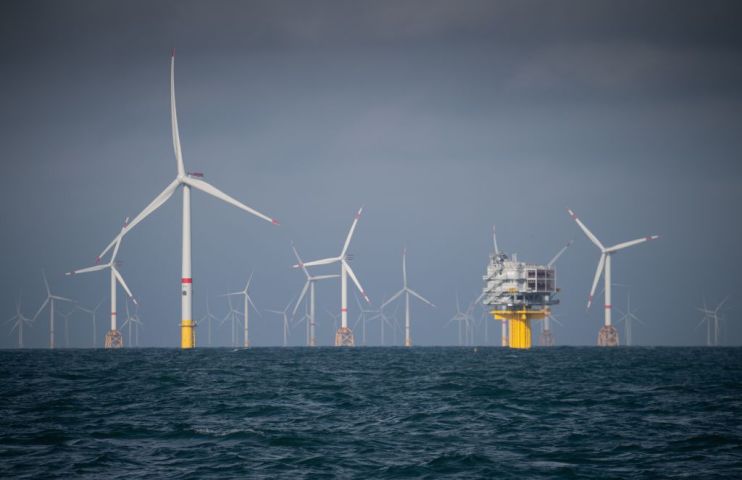Offshore wind primed to benefit from investment boom and energy transition

Offshore wind is set to benefit from the most from upcoming plans to ramp up domestic energy production and ensure secure energy supplies following Russia’s invasion of Ukraine, as the country targets net zero carbon emissions by 2050.
Research from trade body Offshore Energies UK (OEUK) suggested the biggest investment in low carbon and zero carbon energy sources over the course of the decade would come from oil and gas companies transitioning to more environmentally-friendly alternatives.
This would place offshore wind in prime position to receive £70bn plus in capital investment from private companies, adding 40 gigawatts (GW) of capacity to the 11 GW already built across the country, alongside £20bn in operational expenditure, for maintaining and operating wind farm infrastructure
Other low carbon technologies will attract billions more, including £20bn in mass hydrogen production and carbon capture transport and storage plants.
The investments would be part of £200-250bn OEUK forecasts to be spent domestically between now and the end of the decade, with 60 per cent focused on renewable and low carbon energy infrastructure.
The government is currently targeting 50GW offshore energy as part of it supply security plans unveiled last month, with association group RenewableUK outlining that 86GW of potential power generation exists domestically across various planning stages.
OEUK has assessed the spending plans of offshore energy companies operating in the North Sea and other UK waters, looking at their investment plans between now and 2030.
Its research further suggests oil and gas will remain vital for many years, albeit in decreasing amounts, so energy companies are planning further investments to ensure the UK can meet as much of its own needs as possible.
This £25bn to open new oil and gas fields or expand existing resources and £50bn to maintain or improve existing infrastructure – much of which is ageing.
North Sea oil and gas exploration is also a key tenet of the government’s energy security strategy, with Prime Minister Boris Johnson meeting multiple industry leaders at roundtables in Downing Street earlier this year.
Spending needs to be ramped up to meet net-zero targets
Despite the robust reports of UK investments, OEUK has warned current spending trends are only a fraction of what is needed for the UK to reach net zero – the point at which it generates no overall greenhouse gas emissions.
The Office for Budgetary Responsibility (OBR) has put the cost of reaching net zero at £1.4tn and has said £1tn of this money must come from UK companies.
Some energy giants have already set out their investment plans.
BP, one of the largest UK oil and gas producers, this week unveiled plans to invest up to £18bn in the UK’s energy system by the end of 2030.
Most of its plans are for offshore wind and other low-carbon projects such as mass hydrogen production and CO2 capture.
The research coincides with growing calls for a windfall tax following record profits across the domestic oil and gas industry.
However, OEUK has pointed out there is a surge in tax revenue being generated for the UK exchequer by the offshore sector
According to the latest oBR figures, £20 million in tax is currently being paid by offshore oil and gas companies – more than double what they were paying a year ago.
Overall, £7.8bn in total tax income will be paid by offshore oil and gas companies for this financial year – more than double the £3.1bn paid last year.
Ross Dornan, OEUK’s market intelligence manager, who oversaw the research, said he expected to see offshore energy companies investing up to £150 billion in renewable and low-carbon projects, plus another £90 billion in oil and gas projects by 2030.
He also called for domestic investment to be boosted to protect the UK from future market shocks which have exacerbated the cost of living crisis.
Dornan said: “We must invest in our existing oil and gas reserves to protect the UK against the global prices spikes and possible shortages generated by crises like Russia’s invasion of Ukraine, while also spending billions on the energies of the future.”
Alongside energy security, Dornan suggested it was key to ensure tax and governing rules were consistent – with or without a windfall tax.
He concluded: “The UK could become a world leader in low-carbon and renewable energy – but to achieve that we need long-term thinking by planners and policymakers.”
“Above all we need a stable and predictable set of rules governing the way the industry is taxed and regulated. If those rules keep changing it will undermine confidence, drive investors away and make the UK’s net zero targets impossible to achieve.”